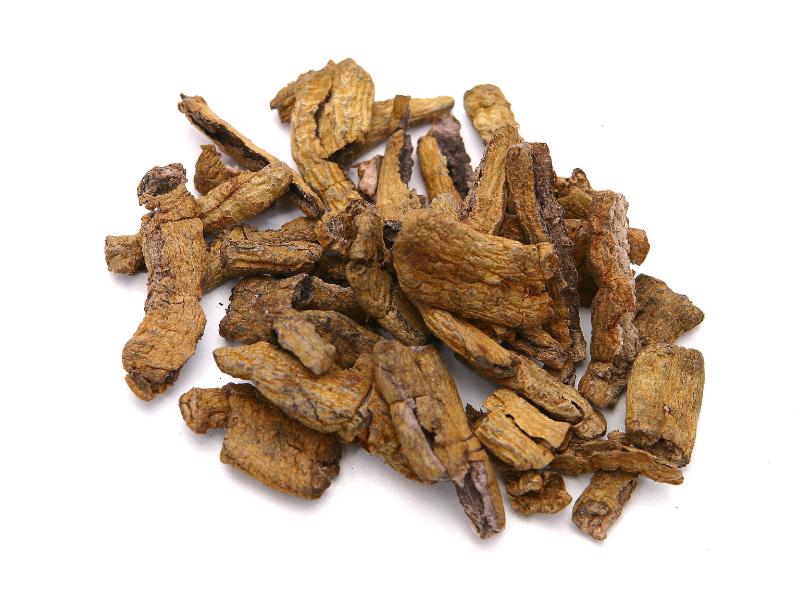Search in medicinals
Morindae Officinalis Radix
Morinda [root]
巴戟天 〔巴戟天〕 bā jǐ tiān

Alternate English names: officinal morinda [root]
Alternate Chinese names: 鸡肠风 jī cháng fēng; 兔子肠 tù zǐ cháng; 巴戟 bā jǐ; 巴戟肉 bā jǐ ròu
Kingdom: Plant
Origin in PRC Pharmacopoeia: Morinda officinalis How. (PRC Pharmacopoeia)
Origin in unofficial sources: Morinda officinalis How
Use: Medicinal
Category: Supplementing agents / Yáng-supplementing agents
Properties: Sweet, acrid; slightly warm.
Channel entry: Liver and kidney channels.
Actions and indications:
- Supplements kidney yáng: Kidney yáng vacuity impotence, infertility, menstrual irregularities, cold pain in the lesser abdomen.
- Strengthens sinew and bone and dispels wind-damp:
Liver-kidney vacuity with limp wilting sinews and bones, limp or painful lumbus and knees; enduring wind-damp impediment and/or difficulty in walking.
Dosage and method: Oral: 10–15g in decoctions.
Warnings: Contraindicated in yīn vacuity with effulgent fire.
Product description: This root is cylindrical and contorted in shape. It varies from 1–2.5 cm in length and has transverse fissures and longitudinal creases. The woody interior is tough and supple. The decocting pieces are short sections, which are dark brown on the cut edge with a well-developed cortex.
Quality: The best quality roots are fat, clean and with a thin core. They should be moist and sweet.
Production area: Cultivated in Guǎngdōng and Guǎngxī.
Etymology: Bā jǐ tiān 巴戟天, literally Sichuanese halberd heaven,
bā shǔ 巴蜀 being an alternate name for Sìchuān.